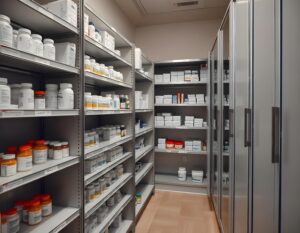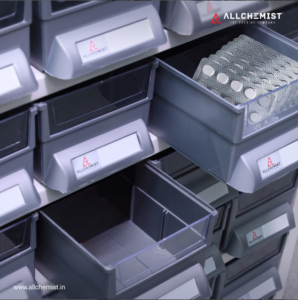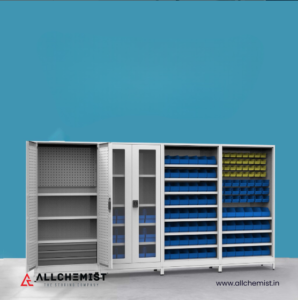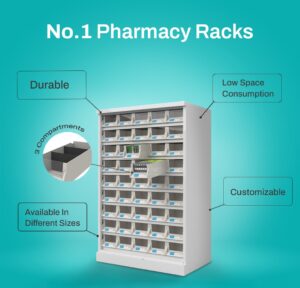
Ensuring the efficient and reliable storage of medical supplies is a cornerstone of a well-functioning healthcare system. From life-saving medications and delicate surgical instruments to temperature-sensitive vaccines and blood products, proper storage is critical for maintaining their potency, safety, and accessibility. However, traditional storage methods often face limitations – limited space leading to cluttered shelves, manual tracking prone to human error, and difficulty in maintaining consistent temperature for sensitive supplies.
Fortunately, the tide is turning. Modern technology advancements are revolutionizing medical storage solutions, leading to a new era of efficiency, accuracy, and improved patient care. This blog dives deep into these advancements, exploring how innovative technologies are transforming the way healthcare facilities manage their medical supplies.
Automating Storage and Retrieval in Medical Storage Solutions
Imagine a hospital with towering storage units, but instead of relying on manual retrieval, robots zip around fulfilling requests. This is the reality with Automated Storage and Retrieval Systems (AS/RS). These high-tech systems utilize computer-controlled mechanisms and robotic arms to manage medical supplies. Here’s how they benefit healthcare facilities:
- Optimized Space Utilization: AS/RS maximizes storage capacity by utilizing vertical space efficiently. Shelving units move on tracks, allowing robots to access supplies in previously inaccessible areas. This can be a game-changer for facilities with limited floor space.
- Improved Retrieval Speeds: Gone are the days of searching for misplaced items. AS/RS locates and retrieves supplies quickly, reducing wait times for staff and ultimately, improving patient care. Nurses can spend less time searching and more time delivering critical care.
- Minimized Human Error: Manual retrieval can lead to misplaced items and picking errors. AS/RS automates the process, minimizing human error and ensuring accurate and consistent retrieval of the correct supplies. This reduces medication errors and improves patient safety.
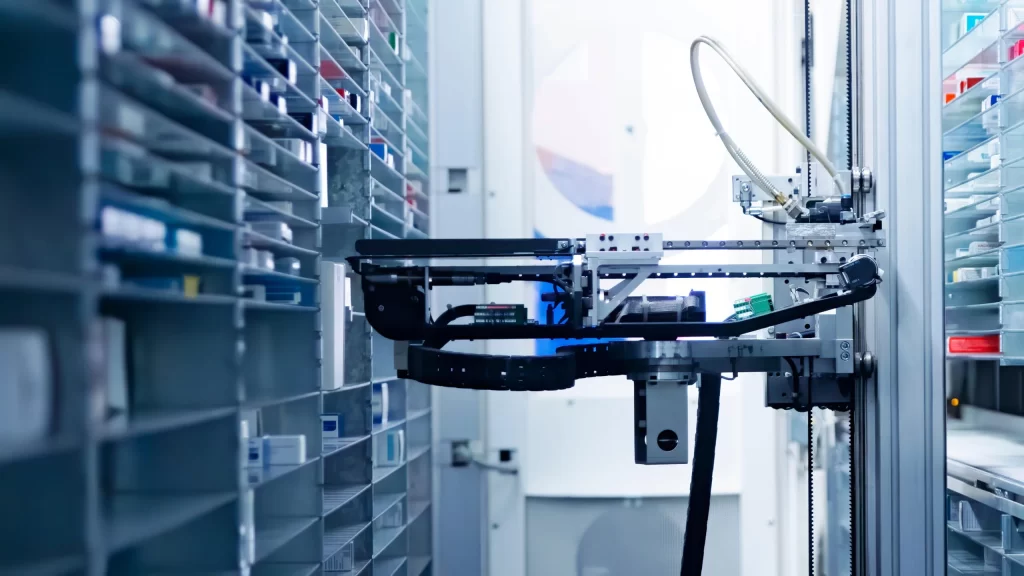
Smart Inventory Management in Medical Storage solutions
Imagine a software program that not only tracks your inventory levels in real-time but also predicts stock needs and automates reordering processes. That’s the magic of Inventory Management Software for medical supplies. These software solutions offer a range of functionalities:
- Predictive Inventory Management: By analyzing historical usage data and considering factors like lead time and seasonal fluctuations, the software predicts stock needs and automatically generates purchase orders, preventing stockouts and waste. This ensures critical supplies are always available when needed.
- Data-Driven Decisions: Generate reports and conduct analytics to understand usage patterns, identify trends, and optimize inventory management. You can identify which supplies are used most frequently and adjust stocking levels accordingly, minimizing waste and unnecessary spending.
- Streamlined Workflow: Integrate inventory management software with other healthcare systems, such as pharmacy dispensing software or electronic health records (EHR), creating a seamless workflow and eliminating data entry redundancies. This saves staff time and reduces the risk of errors.
Maintaining Precise Temperatures: Keeping Cool Under Pressure
Certain medications and vaccines require precise storage temperatures to maintain their efficacy. Here’s how advancements in temperature-controlled storage solutions ensure their potency:
- Cryogenic Storage: For ultra-low temperature requirements (down to -196°C), cryogenic storage utilizes liquid nitrogen to keep sensitive biological samples and vaccines safe and viable. This technology ensures the critical properties of these life-saving products are preserved.
- Smart Monitoring Systems: Say goodbye to manual temperature checks! Smart monitoring systems continuously track temperatures within storage units and send real-time alerts if fluctuations occur, allowing for immediate intervention. This proactive approach prevents spoilage and ensures the safety of temperature-sensitive supplies.
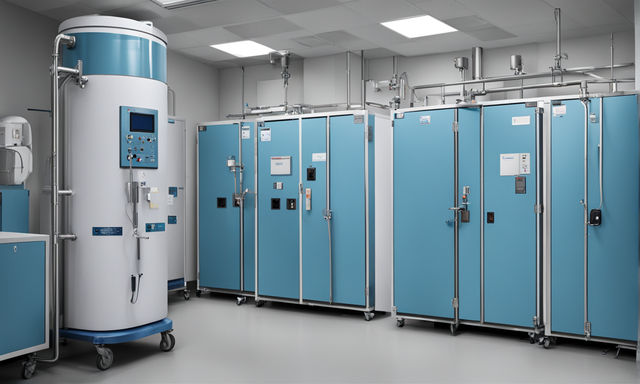
Real-Time Tracking with RFID Technology: Every Item, Accounted For
Imagine a world where every medical supply has its own digital fingerprint. This is the power of Radio Frequency Identification (RFID) technology. Tiny RFID tags attached to supplies emit radio waves that can be scanned by readers, enabling real-time tracking:
- Improved Inventory Control: RFID allows for instant location identification of any medical supply within the facility, eliminating time wasted searching for misplaced items. Staff can locate supplies quickly and efficiently, improving overall workflow.
- Theft Prevention: Track valuable medical supplies and deter theft attempts with real-time monitoring capabilities. This protects against loss and ensures critical supplies are available for patient care.
- Enhanced Medication Safety: Ensure the right medication is dispensed by tracking expiration dates and preventing mix-ups, ultimately improving patient safety. RFID technology can be a crucial safeguard against medication errors.
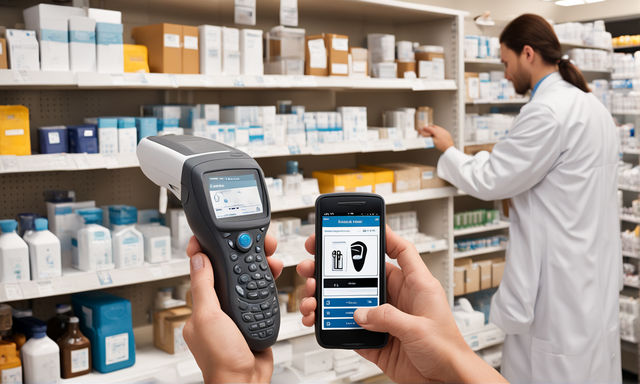
Cloud-Based Solutions: Scalability and Accessibility
Gone are the days of bulky server systems restricting storage management capabilities. Cloud-based storage management systems offer several advantages:
- Scalability: Cloud storage scales effortlessly to accommodate growing inventory needs as your healthcare facility expands. You don’t need to invest in additional hardware or software as your needs evolve.
- Remote Access: Authorized personnel can access inventory data and reports from any internet-connected device, facilitating remote monitoring and management. This allows for greater flexibility and oversight, enabling supervisors to check inventory levels or staff to access information from anywhere.
- Data Analytics for Informed Decisions: Utilize the power of cloud-based analytics to gain deeper insights into inventory trends and make data-driven decisions to optimize storage and minimize waste. You can analyze usage patterns across departments, identify areas for improvement, and ultimately optimize your entire inventory management system.

Revolutionizing Blood Bank Storage: A More Efficient Blood Chain
Blood banks face unique challenges in managing blood and blood components, which require specific storage conditions and precise tracking. Here’s how technology is transforming blood bank storage:
- Automated Blood Component Management Systems: These systems automate the storage, retrieval, and tracking of blood components, ensuring efficient management and faster response times when blood is needed. This minimizes errors and delays in critical situations.
- Smart Freezers: Advanced freezers equipped with temperature control, inventory tracking, and expiration alerts ensure the optimal storage and safety of blood products. They can even generate automatic alerts if blood components are nearing their expiration date, preventing waste.
Pharmacy Automation for Efficiency
In pharmacies, efficiency is paramount. Here’s how robotics and automation are taking center stage:
- Reduced Dispensing Errors: Robotic dispensing systems eliminate the possibility of human error during medication selection and packaging, improving medication safety and patient care.
- Faster Medication Dispensing: Automation streamlines the dispensing process, reducing wait times for patients and freeing up pharmacist time for consultations and other tasks. This leads to a more efficient pharmacy workflow and improved patient experience.
Wearable Tech for Streamlined Inventory Management
Imagine nurses or staff scanning medical supplies with a smartwatch. Wearable technology is making inroads into inventory management:
- Improved Mobility and Efficiency: Wearable technology eliminates reliance on static computers or scanners, allowing staff to scan and track supplies on the go. This improves workflow and saves time spent searching for inventory management tools.
- Real-Time Data Collection: Scanned data can be instantly uploaded to the inventory management system, providing real-time insights into stock levels. This allows for proactive inventory management and prevents stockouts.
Cybersecurity for Secure Data Storage
With the increasing reliance on technology, cybersecurity becomes paramount. Here’s why data security is crucial in medical storage:
- Protecting Sensitive Medical Data: Medical storage solutions often store sensitive patient information along with inventory data. Robust cybersecurity measures are essential to protect this data from unauthorized access or breaches.
- Best Practices for Security: Implementing strong passwords, data encryption, and regular security audits are essential steps to ensure the integrity and security of sensitive medical data.
The Future of Medical Storage with AI
Artificial intelligence (AI) holds immense potential for the future of medical storage:
- Predictive Maintenance: AI algorithms can analyze sensor data from storage equipment to predict potential maintenance needs, preventing unexpected equipment failures and ensuring uninterrupted operation.
- Optimizing Storage Utilization: AI can analyze historical usage patterns and predict future needs, optimizing storage allocation and minimizing wasted space. This leads to a more efficient and cost-effective storage system.
Conclusion
Modern technology advancements are transforming medical storage solutions from a logistical challenge into a strategic advantage. These advancements promote efficiency, accuracy, and ultimately, improved patient care. By embracing these technologies, healthcare facilities can create a more streamlined and reliable storage system, ensuring the right supplies are readily available when they are needed most.








